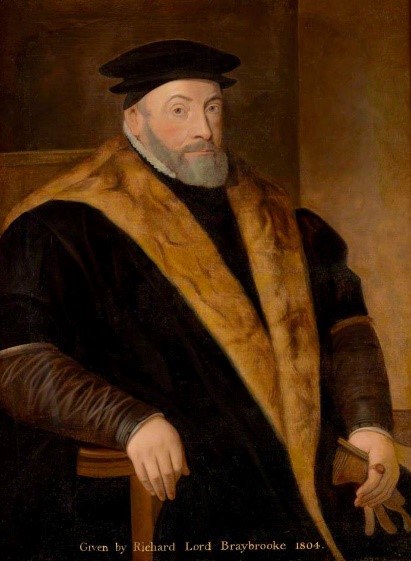Landholding in Tudor England
Chapter 3 : The 1529 Bill
By 1529, Henry VIII was short of cash. Repeated taxation in the 1520s had brought ominous rumbles of discontent, so new methods of raising money had to be found. Henry bethought him of feudal duties. A Bill was introduced to Parliament to modify property law:
1. Any other tenure for holding land for an indeterminate period other than fee simple was to be abolished. That is, no service was to be required to hold land. (For a determinate period, a lease would be used).
2. Land entails below the degree of baron would be abolished. An entail is a clause which directs how land is to be inherited – the most common entail was ‘in tail male’ which meant to the son. Other entails might be ‘in tail general’ which included daughters and siblings. Entailed land cannot be alienated away from the heirs. By abolishing it, land would have been alienable to anyone. By preserving this right to the nobility, it compounded their hold on land.
3. All uses not registered with Chancery were to be declared null and void.
4. No new enfeoffments to use could be created.
5. Any deed conveying land must be read publicly in the parish church and registered in Chancery, by which means any secret enfeoffments would be discovered. A complex bureaucracy was to be set in place to police it.
The House of Lords, with permission to continue entails, and a few other variations for its benefit, was prepared to accept the Bill, but the House of Commons was in an uproar.
By removing enfeoffment to uses, all of the feudal incidents would once again become payable and by preventing degrees below the barony from creating entails, people lower down the social scale would not have the same protection from debt as nobles did. This was because if entailed land were mortgaged, the lender only had a contract with the holder of the land at the time of the mortgage. If he died, the debt was not enforceable against the heir.
The Commons was comprised of large landholders below noble rank and lawyers. The landholders saw themselves having to pay feudal incidents, whilst the lawyers saw profitable business disappearing – they not only drew up the contracts, but were frequently feoffees and thus entitled to a fee.
The Commons refused the Bill. Henry then suggested a compromise – individuals could pass half their land by will, if the remainder were to pass according to feudal custom with the relief to be paid, but the Commons would not agree. To quote the chronicler, Edward Hall:
‘When this bill first came among the Commons, Lord!, how the ignorant persons were grieved and how shamefully they spake of the bill and of the King’s Legal Counsel.’
It seems that in 1532, Henry sent the Bill back to the Commons, with heavy threats that if they did not accept his compromise, he would ‘serche out the extremitie of the lawe and then wyll I not offre you so muche agayne.’ (Hall).
As enfeoffment to use was not covered by common law, any appeal to Chancery as had been permitted since the 1430s could be negated by the Chancellor finding that the enfeoffment had been created as a deliberate ploy to defraud the Crown and strike it down.
Whilst this use of the law helped Henry to a degree, he needed Parliamentary enactment of a clear law. Matters came to a head in 1535 when Lord Darcy enfeoffed his land to use, to provide for the minority of his heir. On the facts of the case, similar arrangements had been accepted by the Court of Chancery, but Darcy’s arrangement was struck down by Lord Chancellor Audley as collusion to defraud the Crown. The Commons were now faced with the prospect that, rather than being limited to alienating half their land by will to avoid feudal incidents, the whole structure of enfeoffments might come tumbling down.
In 1536, a new Statute was proposed by the King and accepted by Parliament. According to the Statute of Uses:
1. Any land held to the use of a person, was legally owned by that person ie cestui qui use became the legal owner.
2. Four new types of land interest were created: springing uses, shifting uses, bargain and sale, and lease and release.
Parliament was deeply disgruntled by the Statute of Uses, but the events of the early 1530s had led members to fear over-zealous dissent to the King’s will. The unpopularity of the Statute may be seen in a demand for its repeal being included in the petitions of the Pilgrimage of Grace.
Once Henry had quashed the rebellion, he needed to deal with the fact that a large swathe of the gentry had supported it. One way to reclaim favour was the Statute of Wills 1540 which permitted Barons-in-chief to devise two-thirds of their land by will, leaving only one-third subject to feudal incidents. Henry was able to afford this, because of the huge influx of treasure from the dissolution of the monasteries.
The last vestiges of feudal land tenure were swept away by the Law of Property Act, 1925.







